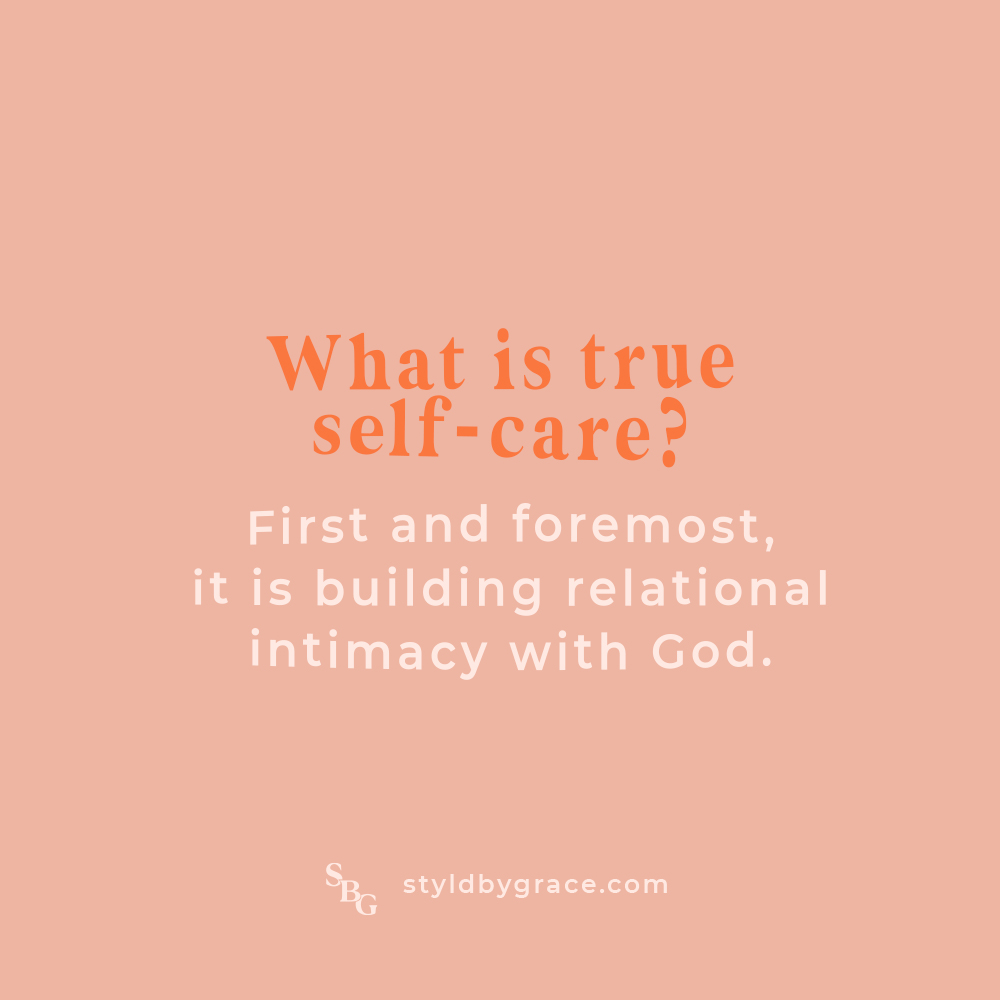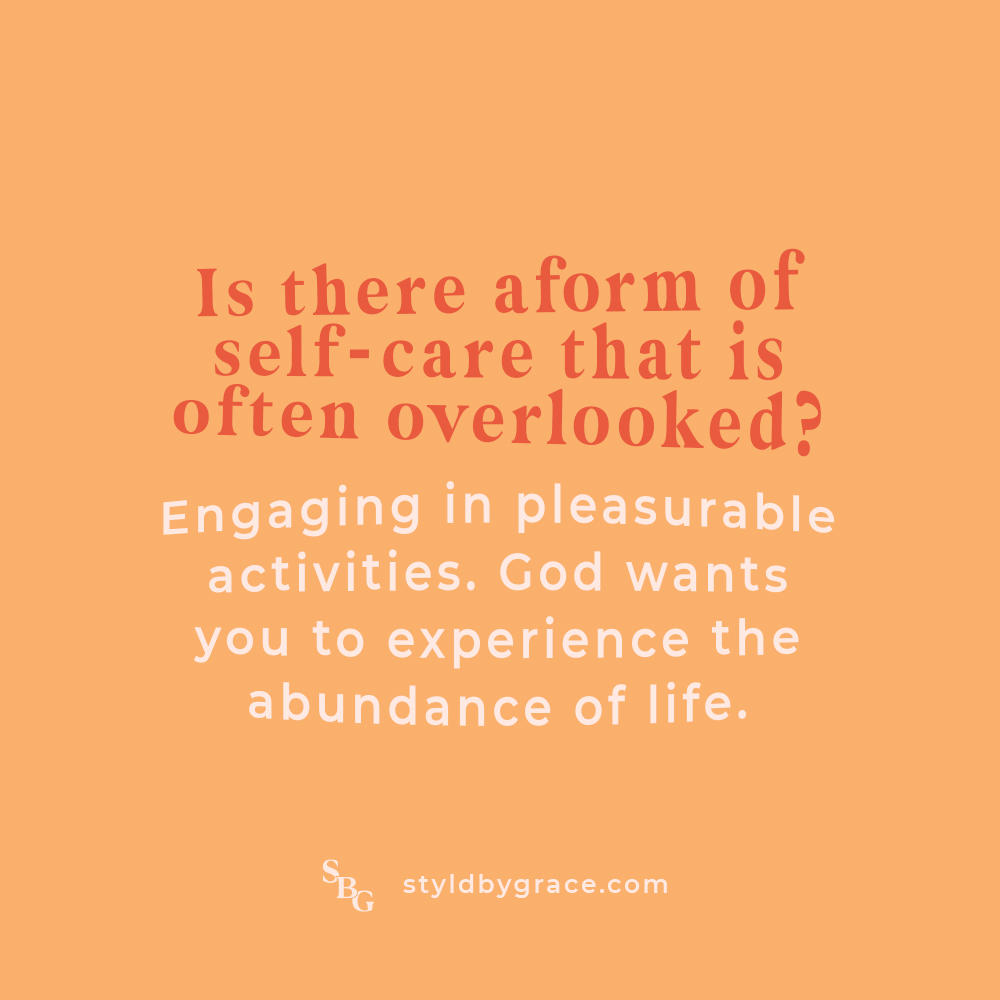Self-care is such a popular and trending topic right now. Women are craving peace of mind, freedom from anxiety, and true renewal in body, spirit, and soul. And I think we’re all pretty worn out on hearing the same tips and tricks, like having a nighttime skincare routine? I’m all for that, do not get me wrong. But self-care is so much more than that.
Today I’m so glad and proud to have a dear friend of mine on the blog to get a deeper revelation of what self-care is and what that looks like for the modern Christian woman.
Her name is Rhodena Mesadieu and she is a Licensed Clinical Social Worker who is the owner of Restore Wellness Counseling Center, a private practice in Royal Palm Beach. She specializes in working with adolescent girls and adult women that have a history of trauma. She is also the Founder and CEO of Dare To Be A Girl, a nonprofit organization dedicated to providing psychoeducational groups to girls 8-18 years old. She is also a woman of faith, a mom, attends Bible study every week, and loves musical theatre.
I’d say she’s pretty wise and knowledgeable on the topic of mental health. So let’s dive right into the Q&A…

Q: What is true self-care? From a Biblical Perspective?
Rhodena: I think first and foremost it is our relationship with God. Are we communing with him? Are we building relational intimacy with Him? Are we going to Him as our refuge to gain that peace and that calmness? It doesn’t mean that it’s without difficulty or without suffering. But even in the midst of suffering, do we use that to rebel or are we continuing to build our intimacy with Him? It’s really about being in the presence of God and at the feet of Jesus.
Q: How do we build relational intimacy with God?
Rhodena: What does he command us to do? To love God and to love others as ourselves. And that is a very relation thing. How is our relationship with others? Are we loving our neighbors? Are we receiving love? Are we living in community? Are we part of a local church? Are we reading the Bible daily on our own and with others?
Q: Would you say that reading God’s word is part of self care?
Rhodena: It’s knowing God and building a relationship. And you can only build a relationship by knowing that person. And the Bible really allows that. It’s like saying you really know your spouse but you don’t spend time getting to know them. And we need God’s word to build other people up. Iron sharpens iron. So when we sharpen ourselves, we also sharpen ourselves.
Q: What does self care look like when we are giving and receiving love?
Rhodena: When it comes to giving love we are positioning ourselves to be selfless and to be Christ-like. We are considering others. And I know there is a view of considering others as above ourselves but I view it as loving others as yourself. Sometimes in self-care when we are giving to other people, we forget ourselves. And we think we are being selfless and giving. But we are deteriorating. Essentially we are pouring out from a place of flesh, not spirit. And maybe doing so to see how we feel or get when we’re giving to others.
When it comes to receiving love it’s about being open to others lifting you up. When we believe that we don’t need anyone or that it’s ok for us to give help but not receive help, that is the opposite of being part of the Church.

Q: There is so much talk about toxic relationships. How do we know when something is toxic? And as Christians where do we draw the line? Is it even ok to cut people off?
A lot of people don’t agree with the notion of cutting people off. But if we’re Christian, everything that we do should be bringing God glory, and so if we have people in our lives that aren’t doing that, then we have to look to see what we need to change in that relationship. Whether that’s anger, jealousy, fear, etc. When you’re brewing these things in your heart and in your relationships, that is going to come out as toxic behavior. Other examples are holding resentment or gossiping. We have to look at how much we’re looking to our friendships to be our everything or to provide things that we should be going to God for.
There are some people who think we should never cut off people. The Bible tells us to forgive others. And Jesus said to forgive 70×7 times. But what’s the boundary there? Jesus showed us he also had boundaries with people. He took time to rest and get away. And we have to look at how we’re using our boundaries. Is it to just shut people out? That would be more of isolation. Or are we using boundaries to establish healthy relationships?
And if a person is truly causing you to sin, then perhaps that person shouldn’t be in your life as close. I don’t know if it should be a total cut-off. That would be a rigid boundary. And only if they aren’t able to honor your boundary. But ignoring or pretending like the person doesn’t exist wouldn’t be right either.
Q: What are practical ways to practice self-care, outside of what we usually hear like getting a mani/pedi?
Rhodena: Making time for rest. That is very important. Do you have margin in your schedule for rest? Do you have time that you take for self-reflection? To be with yourself and check how you’re feeling. To check how your mood is. Are you feeling low? Checking to see what needs to be filled in. And then, of course, taking care of your body. Staying active. Getting enough sleep. Having proper nutrition. And even managing your finances.
Q: How do you practice self reflection?
Rhodena: You can do that through journaling. You can do that through quiet time and see what comes to mind. You can also do that by reading the Bible. And seeing what that Word is trying to you? What is God wanting to say to you? And how does that make you feel? Are you feeling resistance? Are you feeling at peace? That can tell you how you feel. You are kind of doing a body scan to notice any tension.
Q: Why is managing your finances a form of self-care?
Rhodena: Because it’s a big part of what we do and what we are able to offer in the world. How you manage your finances shows where you’re prioritizing things. When you’re not looking at your finances as another way to take care of yourself, you’re not looking at where you’re putting your money to grow yourself and others. So if I want to be available to help a single mom with dinner, then I need to manage my finances to make sure that I’m doing that well. And there can be a lot of stress around finances. Your finances can cause anxiety depending on how you manage them. It’s something we use every day.

Q: Is there a form of self-care that you would say is often overlooked?
Rhodena: Engaging in pleasurable activities. Are we experiencing joy? That is a big part of our faith too. God wants you to be happy. He wants you to experience the abundance of life. Are you putting that in your schedule? Another big one is engaging in our purpose and calling? Everyone’s purpose, calling, and spiritual gifts are different. Whether that’s more practical, at your local church, with your family. But God calls us to be purposeful in how we live. And knowing what that purpose is is important.
Q: As an expert in sexual trauma, how would you suggest that our sexuality plays a part in our mental health and self-care?
It’s important to know the purpose of sex so that we aren’t mischaracterizing it. And there can also be trauma associated with sex. There’s a recovery and restoring process if you’ve had a negative association with sex due to harm, pain, or betrayal. But God wants to restore your sexuality away from that pain. He wants to restore it to what it was originally created for. It’s also seeing God in the midst of that pain and knowing that He is right there with you. And looking to God as our healer so that God can restore it to what our sexuality was actually made for.
Q: Ok, last question…What was our sexuality made for?
God made us sexual beings. But we have taken our sexuality in the context of how the world sees it. The world sees it as a way to please ourselves even when in a committed relationship. But our sexuality is meant to be a metaphor of God’s love and intimacy for us. Our sexuality is actually meant to be a point of reference to be drawn to God to build intimacy. And he wants us to enjoy it within the context of marriage which is the other metaphor it points to. A covenant. He has placed these desires in us. And when we experience our sexuality there are longings and desires that we have which are meant to be fulfilled by God. Sometimes that can sound weird, but it is a metaphor and indication of the intimacy and emotional capacity we hold. Our physical way of expressing it can be through sex with our spouse but ultimately us being a sexual being points to our longing and need for intimacy to be filled by God.
Wow! I learned so much through this Q&A with my friend Rhodena! It’s jam-packed with wisdom, practical insight, and Holy Spirit revelation. I hope this blessed you and helped you think of ways to practice true self-care.
Featured Image: riverandbrave.co



+ show Comments
- Hide Comments
add a comment